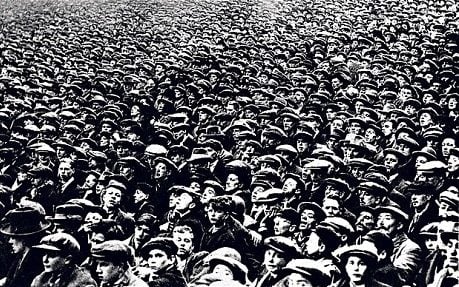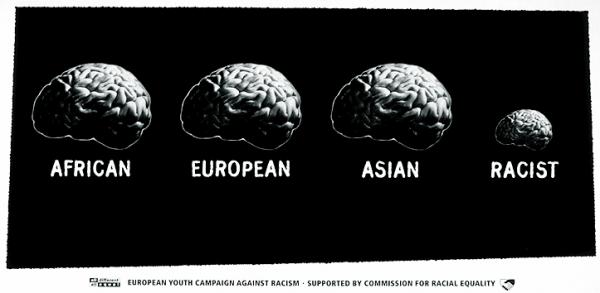
The early history of the 20thC panned out much along the lines Karl Marx anticipated. The human bloodbath of World War One exposed capitalism as a dreadful system, and a great many political struggles took place from outright revolution in Russia to lesser fights in Germany and Britain’s women successfully won the right to vote. In Britain 1926, millions of working days were lost to the capitalists by a colossal wave of strike action. The legacy of all these battles is still felt today, albeit with a touch of nostalgia.
The degeneration of the Soviet Union into state-capitalism was very costly. It made people think revolutionary ideology was dangerous – nevertheless, struggles persisted in all countries for several decades, particularly after the Right was discredited through a reaction to all the policies of racism of the imperial powers, the worst of which was of course, the Nazi Holocaust.
But the knock-on effects of all the defeats, the failure of new intellectuals to match up to the stature of a Marx or Lenin, was gradually taking its toll. The working class were increasingly losing – but nevertheless, they kept up the struggle as if their lives depended on it. But from the 1970s onwards, workers found they faced a new threat. No longer was it just the capitalists and their state they had to fight. A curious new strain of thinking had grown up in left-wing circles, which we now have come to know as ‘political correctness’.
Instead of your trade union being an unequivocal friend in battle, now they were issuing speech codes and telling you off for a joke deemed to be ‘offensive’ to a minority. No wonder trade union membership began to falter from the 1980s onwards in the imperial countries – workers were losing their allies on the politically active left, particularly those allies that were now bastard students.
A weakened left stood no chance against the onslaught of Margaret Thatcher during the mid-eighties Miner’s Strike in Britain. However, in earlier times, such defeat at the hands of police who were literally beating up striking miners, could have been fixed. In earlier times, state violence merely suppressed one protest at a time. But people would regroup, learn from their own mistakes, get stronger, and go on to win. What was unique about the precarious position of miners in the 80s was that the left was also against them too, despite crass lip service paid to the cause. The unions and the Labour Party were constantly trying to correct bad manners and such among the workers. It was no surprise then that Margaret Thatcher won a landslide in 1987.
Fast forward to the period 1990-2016, workers are subdued in all the imperial countries. Political correctness without many speaking out against it, has become a form of mind control. The working class in this period resemble beaten down drones, struggling to survive, often behaving like rats fighting over a piece of courgette that has fallen into a urinal. In this period, workers even snitched on their cohorts for breaching a code of conduct – it was the only sense of power they could get. Their own character, never mind the surplus value they were producing, was also now being torn away from them by a capitalism in an acute crisis.
However, nothing stays the same for long, thank god! The 2016 European Referendum in Britain showed workers revolting to the extent they wanted to shut down that aspect of Imperialism known as the European Union. In the same year in the USA, Donald Trump, the populist candidate, gained the Presidency.
Obviously these developments are very complicated and more analysis is required. But it seems there is a new populism out there, workers are finding ways to circumnavigate right and left in a desire to rescue their own character and attachments. Donald Trump and Nigel Farage, remain steeped in a barren landscape – the old ideology of the right, so this blogger has no doubt these repulsive creatures will fade away. Nevertheless they have done a service of at least putting a light at the end of the tunnel. The struggle henceforth will be entirely about how much input we can inject into populism and preferably steer it in the direction that all of humanity wants.

